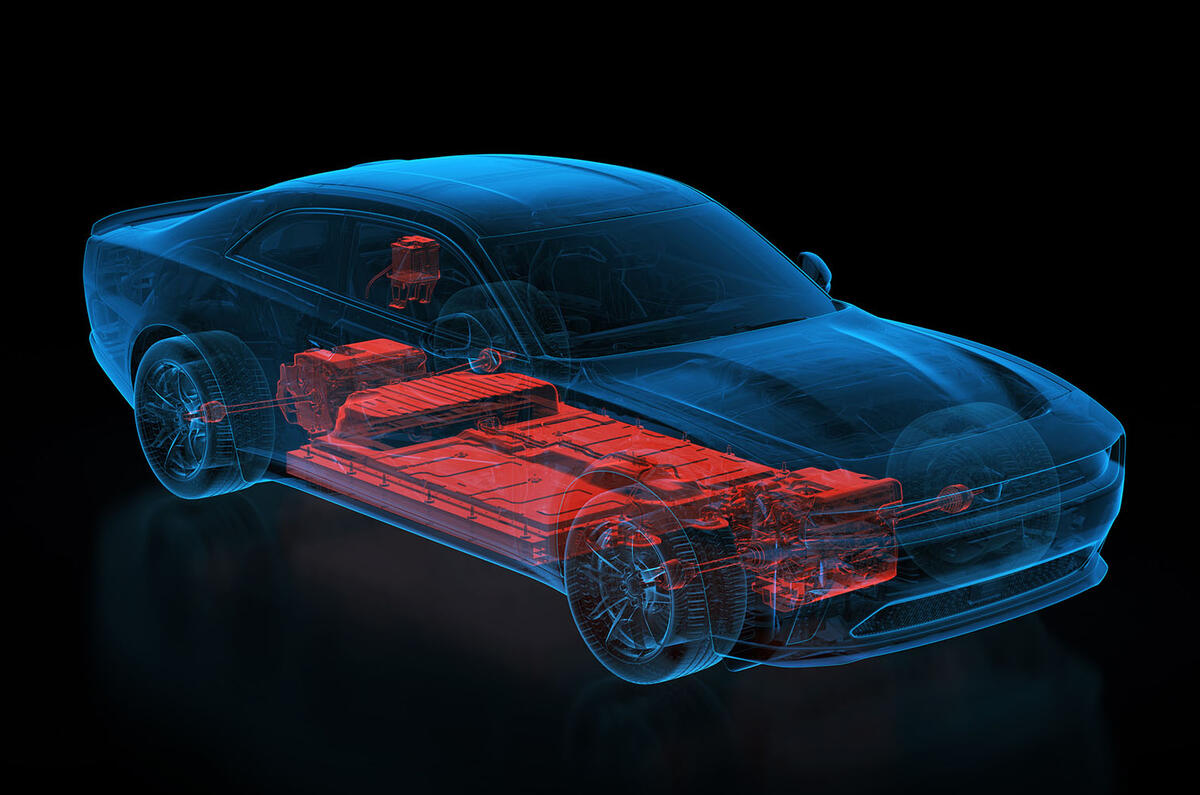Stellantis will start road testing solid-state batteries made by American start-up Factorial in two years.
Factorial’s solid-state cells are said to have an energy density of more than 390Wh/kg, a marked improvement on the approximately 270Wh/kg of many current lithium ion batteries. In real terms, that means electric cars with solid-state batteries will possess significantly longer ranges and reduced weights compared with today’s cars.
Stellantis will fit a fleet of Dodge Charger Daytonas with the Factorial batteries in 2026, validating their performance and durability in real-world conditions.
The firm said cars based on the STLA Large platform (from Alfa Romeo, Maserati, Jeep, Dodge and Chrysler in the D- and E-segments) will be prioritised for the batteries.
The race to sell a production car with a solid-state battery is hotting up after years of manufacturer announcements about them – and missed deadlines.
MG owner SAIC recently announced that it will start equipping cars with the technology next year. Its IM L6 saloon uses a semi-solid-state pack that gives it a range of 497 miles between charges.
Nissan has said its first solid-state EV will arrive in 2028 with batteries that are around half the size and weight of today’s lithium ion pack of an equivalent capacity.
Toyota is aiming to commercialise solid-state batteries in 2027 or 2028.
Chinese manufacturer Chery has said its solid-state batteries (with an energy density of 600Wh/kg) will be ready for production in 2026.
The Volkswagen Group earlier this year announced that its PowerCo battery manufacturing arm has agreed to mass-produce solid-state batteries from American firm QuantumScape.
But not all manufacturers believe that they are the silver bullet they have long been touted to be. Mercedes-Benz technology chief Markus Schäfer said earlier this year that solid-state “may not be necessary” because of “unexpected” progress with lithium ion cells.
“So many people have worked on the conventional cells, making them so much better,” said Schäfer.







Join the debate
Add your comment
Could you imagine an image of a sports car from five years ago poudly showing off the 1500kg of dead weight at the bottom of the chassis raising the drivers seat by 200mm?
Emmm just looked at past Autocar solid state batteries stories. In 2018 Toyota said they'll have them in production cars by 2025 and BMW said they'd solid state batteries in cars by 2024, yes it's a good idea but let's be realistic, especially the bit about charge times which will barely be affected.
Damn. This is promiusing but sounds like yet another reason to delay EV purchase.
On the other hand, there will soon be expensive road tax to pay plus the likelyhood of pay per mile, or high tax on EV recharging.
We just can't win. Think I'll just stick with my low tax, low insurance, low depreciation, long range combustion, fast refuelling car for the time being!
I suppose you still haven't got a mobile phone yet because there's always a new model in 2 years, just because something may be better in 5 years time doesn't mean a current BEV cannot do the job you bought it for.
You also have no intention of buying a BEV anyway.
Thanks for letting us know. I don't expect many to have the same mindset, though.
Thats the problem, is the customers want it as cheap as we can get it, from the manufacturer side, their costs go up from materials to shop, everything has a right to get the best deal, companies have to keep there profits margin up to basically stand still,some pe should remember this.